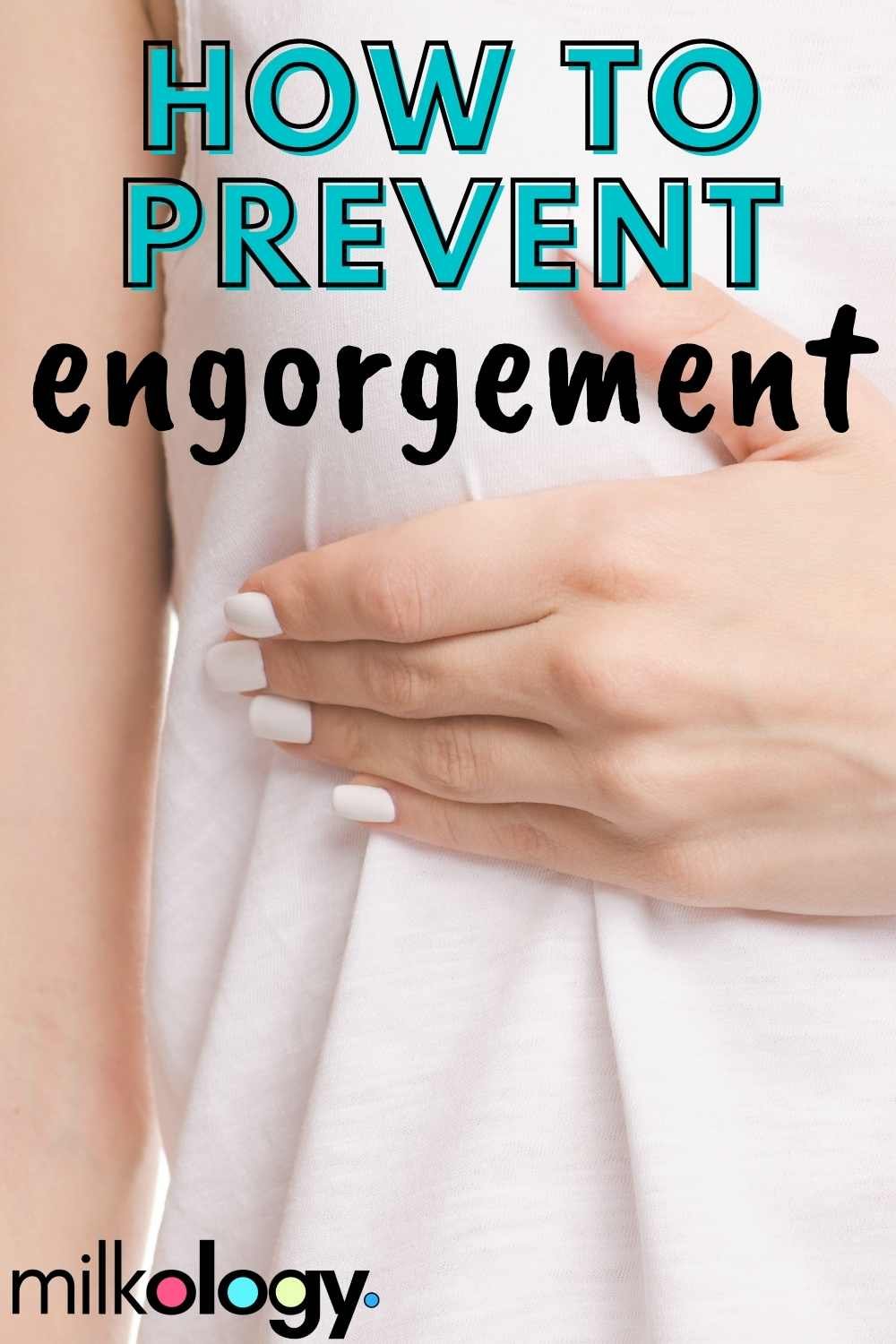How To Prevent Engorgement
In the early days of breastfeeding, and even after that, it’s typical to have times when your breasts become engorged.
It’s totally normal… but NOT FUN.
You probably want to know how you can prevent it from happening in the first place. Read on to discover some insider tips on how to prevent engorgement!
(this post may contain affiliate links)
It’s a GREAT idea to take a simple and affordable breastfeeding class. Breastfeeding is something you need to LEARN to do. The Ultimate Breastfeeding Class is on-demand and perfect for new moms.
What is engorgement?
Signs of mild engorgement include a full feeling in the breasts, but sometimes engorgement can cause your breasts to become very full, firm, or even “hard as rocks,” as some describe it.
When you’re dealing with extreme engorgement, it can become very uncomfortable.
You may not be able to wear a bra, it may hurt if anything touches your breast, and it can be hard to find a comfortable position to sleep.
And it can also be more difficult to breastfeed. Sometimes breasts become so engorged that the nipple flattens, making it challenging for your baby to latch and nurse. Engorgement can also lead to clogged ducts and mastitis (a breast infection).
In other words, engorgement is something you want to avoid if possible!
Yet many of us still end up experiencing it, and one of the prime times that moms tend to get engorged is overnight. This can be a very uncomfortable, unwanted situation, and many moms wonder how to prevent engorgement at night.
PRO-TIP:
To make sure you get all the milk out while breastfeeding, use THIS handy little tool to ensure proper milk flow and ease engorgement.
Why Do I Get Engorged At Night?
You produce the most milk during the nighttime hours and in the early morning. This is because your prolactin levels are highest then, and prolactin is the hormone that tells your body to make milk.
Another reason you’re more likely to experience engorgement at night is as your baby gets older, they may sleep for longer stretches at night. If you’re used to waking up to feed your baby multiple times at night, and then they start sleeping during those times, your breasts will still fill with milk. If your baby sleeps through several feedings in a row, you are likely to become engorged.
You might be wondering if this is a clue that you should wake your baby.
If your baby is growing and thriving otherwise, and breastfeeds frequently during the day, you don’t need to wake your baby to feed at night. Enjoy the extra sleep while it lasts!
How To Prevent Engorgement At Night
You can do a few things to prevent engorgement from happening during those nights your baby sleeps through their feedings.
The bottom line is that you want to relieve engorgement, but not extract too much milk. That’s because the more milk you take out, the more milk you will make, and you will continue to get engorged at night when your baby skips their feedings.
tips for preventing engorgement overnight:
If you are only mildly engorged and not uncomfortable, try to just go back to sleep
If your baby skips more than one feeding, or you find yourself more than mildly engorged, keep a towel nearby and hand express some milk into a towel
Do not express very much milk; just express enough to relieve the engorgement
If hand expression doesn’t work, and you are uncomfortable, you can pump, BUT only pump a very small amount, just enough to soften your breasts
If you continue with these techniques for a few days, and your baby continues to sleep longer stretches, you’ll eventually not wake up engorged.
But keep in mind that babies tend to sleep erratically, and it’s possible that your baby will end up waking up again to feed at some point.
Rest assured that there is always extra milk available in your breasts, so you’ll be able to satisfy your baby even if your nighttime milk supply has decreased.
Our 3 Fav Breastfeeding Products
🌛 1. This nursing bra is the absolute BEST for breastfeeding at night. It’s super comfy and made of the softest material ever.
💪 2. Boost supply and tone up postpartum. Grab this 28-day plan made just for breastfeeding moms — 50+ slimming, milk-boosting recipes and quick 20-min workouts (yep, even baby-wearing + pelvic floor ones!). Get 10% off Milky Mama’s Postpartum Plan using the code STACEY10 at checkout
🤱 3. If your nipples are sore,these are an absolute lifesaver. They’re super cheap, can be worn for multiple days (perfect when you’re trying to get a good latch), and are soooo soothing.
Related Article:
How To Do Reverse Pressure Softening To Relieve Engorgement

